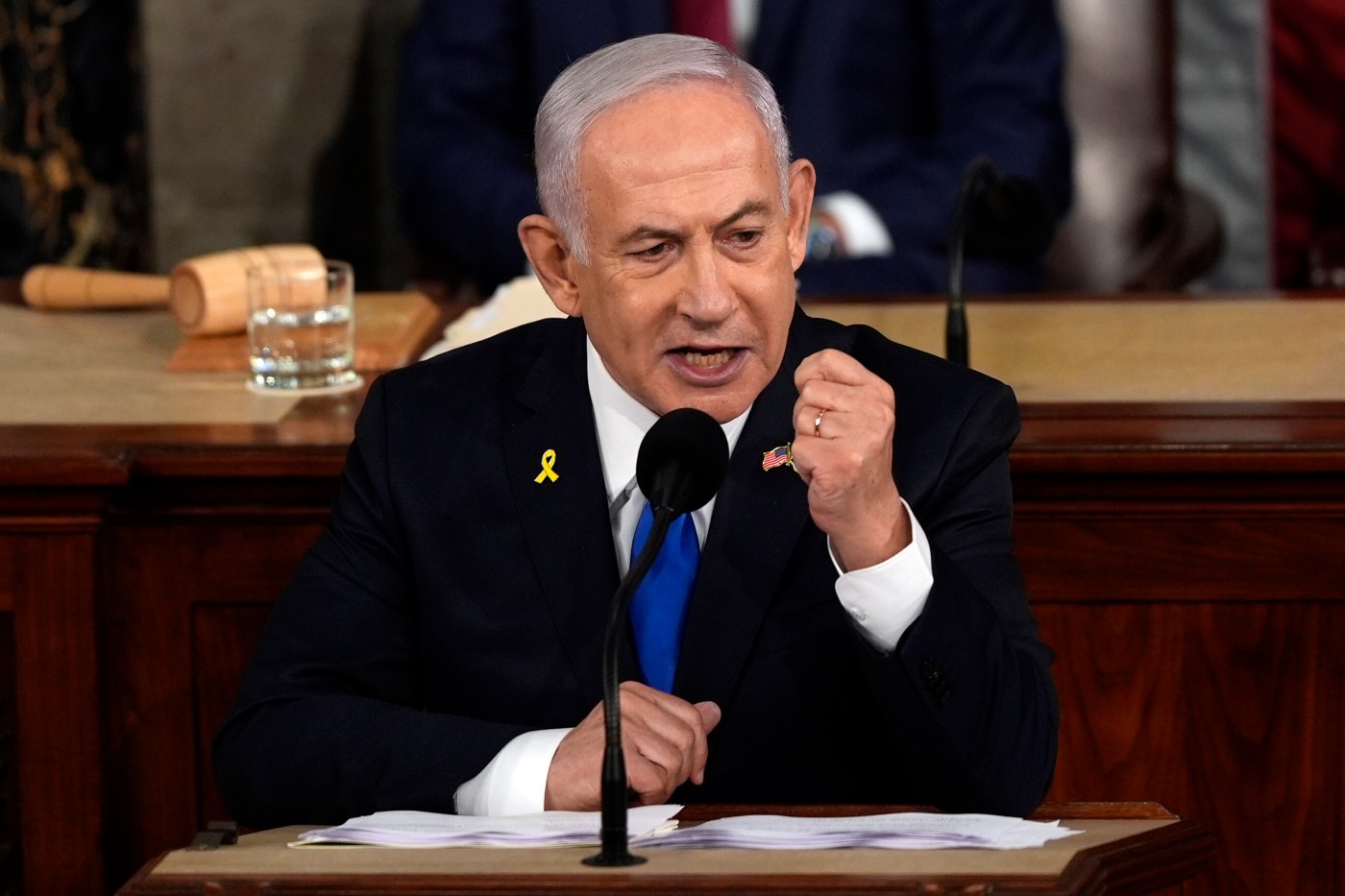
Marc Champion: Netanyahu’s conflicts of interest are hurting Israel
There’s no job on earth less attractive than being a head of state forced to decide between cutting a hostage deal with terrorists that risks encouraging repetition, or consigning innocents to be murdered. Israel’s Prime Minister Benjamin Netanyahu knows this dilemma better than anyone. To get a single soldier back in 2011, he traded more than 1,000 Palestinian prisoners, including Yahya Sinwar, the current Hamas leader who more than a decade later masterminded the mass hostage grab of Oct. 7.
So why was there so much anger against Netanyahu this weekend, rather than empathy for the burden he carries, after six hostages were killed by their minders in a Gaza tunnel? Hamas is, after all, the villain of this piece; it’s both kidnapper and executioner. Yet Netanyahu’s refusal to agree to a cease-fire provoked the largest street protests of the war to date, as well as a nationwide strike by Israel’s biggest trades union and the shuttering of malls and businesses in sympathy.
Judging by the language of the protesters and hostage families, the answer lies in a profound lack of trust in the prime minister’s motivations as he makes these decisions of life, death, war and peace for others.
Netanyahu’s 180-degree change of approach to dealing with hostage takers may be one source of that mistrust. In the one-for-1,027 swap of 2011, for example, he said he was agreeing to release even Hamas prisoners jailed for killing Israelis because “the state of Israel does not abandon its soldiers and citizens.” Now, he says Israel must do exactly that, rather than “surrender” to Hamas.
A second reason lies in the details of what such a surrender would mean. Hamas has been heavily degraded as a fighting force, so no Israeli troops would be waving white flags. The capitulation Netanyahu is ruling out would instead be very specific to the cease-fire negotiations, which have stalled over his late addition of a demand that Israeli forces should retain control of the so-called Philadelphi corridor.
Netanyahu says commanding this a narrow strip of land along Gaza’s border with Egypt is vital to Israel’s security. Yet his own defense minister, Yoav Gallant, says that isn’t true. Nor was the corridor even mentioned in Israel’s original cease-fire proposal — an odd omission if it is indeed so critical as to warrant the sacrifice of more Jewish and Palestinian lives.
“The fact that we prioritize the Philadelphi Corridor at the cost of the lives of the hostages is a moral disgrace,” Gallant told Israel’s security cabinet, which met on Sunday in the wake of the executions, according to a leaked report of the proceedings in the Times of Israel. Other top security officials also have said the corridor isn’t a make-or-break issue, not least because the tunnels Hamas built under the Egyptian border to smuggle arms begin and end outside it.
The deeper source of popular malaise, though, is that Netanyahu has so many apparent conflicts of interest.
A prominent call from protesters is that the prime minister should “take responsibility.” Not only did Netanyahu set Sinwar free in 2011, but Oct. 7 also took place on his watch. There are many who will have to share responsibility for this spectacular security failure in the investigation that’s certain to follow the war; but as the prime minister who oversaw a policy of shifting attention and security resources to the West Bank from Gaza, Netanyahu would top the list.
Ending the war would accelerate other reckonings for the prime minister. The extreme-right leaders on whom he relies for power have made it clear they will bring down the government the moment he agrees to a cease-fire. They see the conflict as a once-in-a-lifetime opportunity to expand Jewish settlement in both the West Bank and Gaza, a goal that requires the long-term military occupation of Palestinian territories.
And should the government collapse, an out-of-power Netanyahu would face ongoing court cases on charges of fraud, breach of trust and bribery as an ordinary citizen. Jail time is a real possibility. Small wonder that so many Israelis believe Netanyahu is driven by personal, rather than national, interests on decisions that might end the fighting.
I’m not at all certain that Netanyahu shares the views of his national security minister, Itamar Ben Gvir, who wants to replace Palestinians in Gaza with Jewish settlers and recently made an inflammatory call for the construction of a synagogue on the Temple Mount. That’s been the site of the Al-Aqsa Mosque, the third holiest site in Islam, since the 7th century.
Nor can anyone outside Netanyahu’s tightest circle be sure that this great political survivor is driven by anything other than his view of the national interest. But, as in all such cases, it’s the appearance of a conflict of interest that counts, precisely because it erodes trust and encourages people to believe the worst.
Netanyahu continues to enjoy domestic support for pursuing the destruction of Hamas. But as the implications for the remaining hostages of continuing the war become increasingly clear, this lack of trust in his motives is dividing the nation. Politicians around the democratic world have walked away from power over less.
Marc Champion is a Bloomberg Opinion columnist covering Europe, Russia and the Middle East. He was previously Istanbul bureau chief for the Wall Street Journal.
Related Articles
Patrick A. McLaughlin: Most, least-regulated states reveal need to get off autopilot
Trudy Rubin: Netanyahu’s betrayal of remaining hostages could drag U.S. into a regional Mideast war
Clive Crook: Harris should reflect on what liberalism means
Noah Feldman: New Trump charges expose the Supreme Court’s failings
Stephen L. Carter: Prosecuting parents won’t stop school shootings

